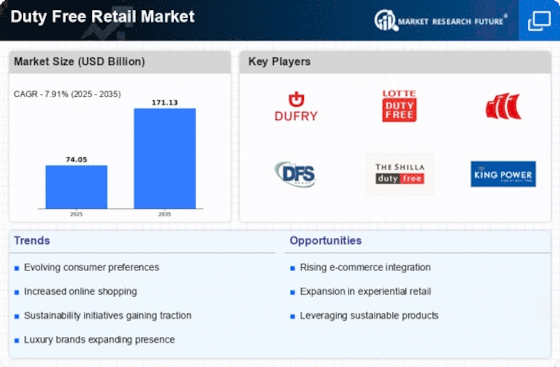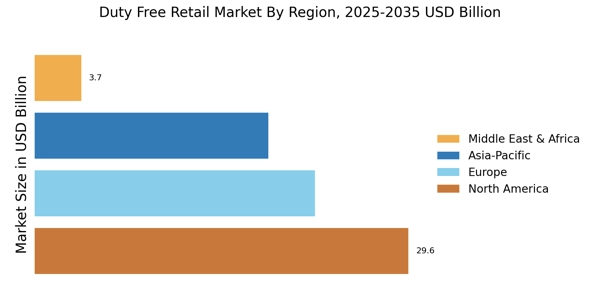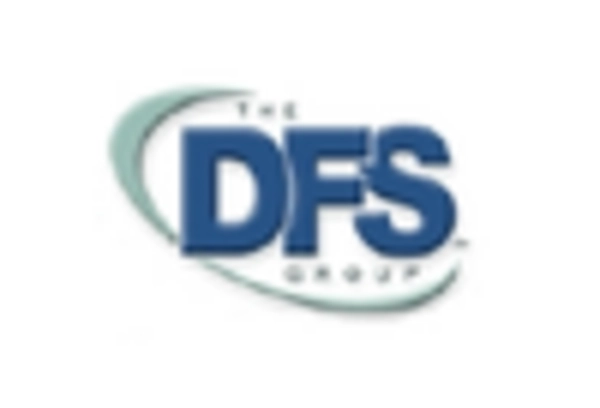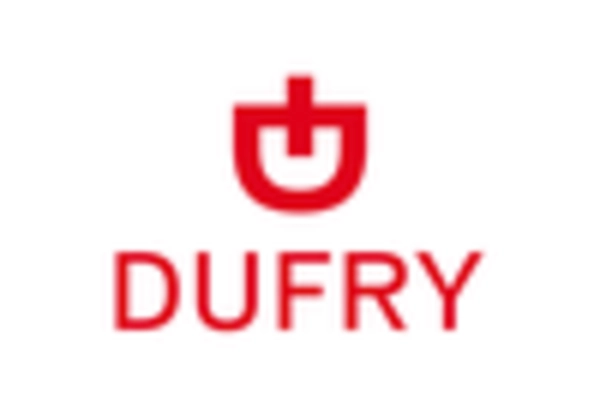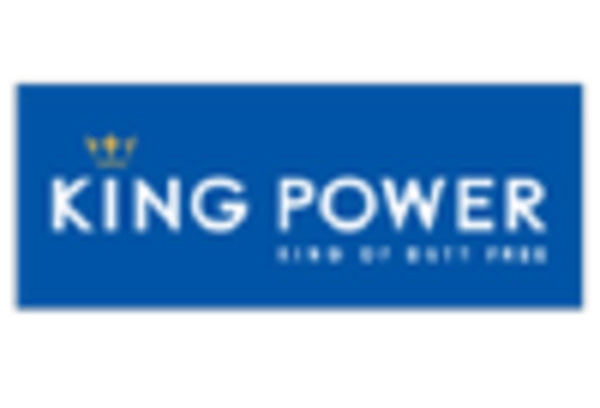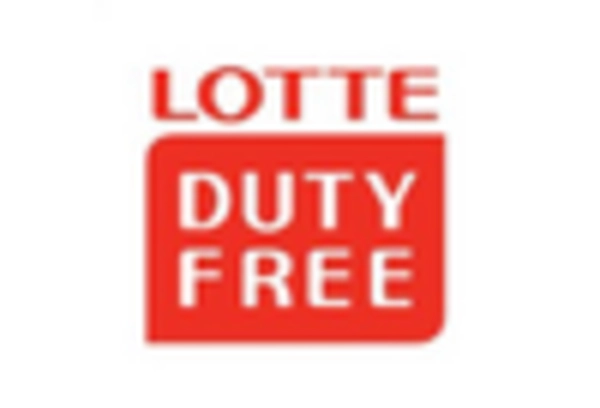Regulatory Changes
Regulatory changes are influencing the duty free retail Market, as governments adapt policies to enhance tourism and trade. In 2025, several countries are expected to revise their duty free regulations, potentially expanding the range of products available for purchase. These changes may include increasing the duty free allowance for travelers, thereby encouraging higher spending at duty free shops. Additionally, the simplification of customs procedures could streamline the shopping experience, making it more appealing for consumers. As regulations evolve, duty free retailers must remain agile, adapting their strategies to comply with new laws while maximizing opportunities for growth. This dynamic regulatory environment presents both challenges and opportunities for the Duty Free Retail Market, as stakeholders navigate the complexities of international trade.
Increased Air Travel
The Duty Free Retail Market is experiencing a notable surge in demand due to the increase in air travel. As more individuals embark on international journeys, the foot traffic in airports rises, leading to greater opportunities for duty free retailers. In 2025, it is estimated that air passenger numbers will reach approximately 4.5 billion, a significant increase from previous years. This influx of travelers creates a robust environment for duty free shops, as consumers seek to purchase luxury goods, cosmetics, and spirits at competitive prices. The convenience of shopping at airports, combined with the allure of tax-free pricing, positions the Duty Free Retail Market favorably in the retail landscape. Consequently, retailers are likely to expand their offerings and enhance the shopping experience to cater to the evolving preferences of international travelers.
Luxury Brand Expansion
The Duty Free Retail Market is witnessing a marked expansion of luxury brands, which is reshaping the competitive landscape. High-end brands are increasingly recognizing the potential of duty free outlets as a strategic channel to reach affluent consumers. In 2025, the luxury goods market is projected to grow by approximately 5%, with a significant portion of this growth attributed to duty free sales. This trend is driven by the desire of travelers to purchase exclusive products that may not be available in their home countries. As luxury brands collaborate with duty free retailers, the product assortment becomes more diverse, appealing to a broader audience. This expansion not only enhances the shopping experience but also reinforces the perception of duty free shops as destinations for premium shopping, thereby solidifying their position within the Duty Free Retail Market.
Technological Advancements
Technological advancements are playing a pivotal role in transforming the Duty Free Retail Market. The integration of digital solutions, such as mobile apps and contactless payment systems, is enhancing the shopping experience for consumers. In 2025, it is anticipated that the adoption of technology in retail will increase by 30%, with duty free retailers at the forefront of this trend. These innovations facilitate personalized shopping experiences, allowing consumers to browse products, access promotions, and make purchases seamlessly. Furthermore, the use of data analytics enables retailers to understand consumer preferences better, tailoring their offerings accordingly. As technology continues to evolve, the Duty Free Retail Market is likely to become more efficient and customer-centric, ultimately driving sales and improving customer satisfaction.
Consumer Trends Towards Experience
The Duty Free Retail Market is increasingly influenced by consumer trends that prioritize experiential shopping. Modern travelers are seeking more than just products; they desire unique experiences that enhance their journey. In 2025, it is projected that experiential retail will account for a significant portion of duty free sales, as retailers innovate to create engaging environments. This may include interactive displays, product sampling, and personalized services that cater to individual preferences. By focusing on the overall shopping experience, duty free retailers can differentiate themselves from traditional retail outlets. This shift towards experience-driven shopping not only attracts consumers but also fosters brand loyalty, ultimately benefiting the Duty Free Retail Market as a whole.
.png)

